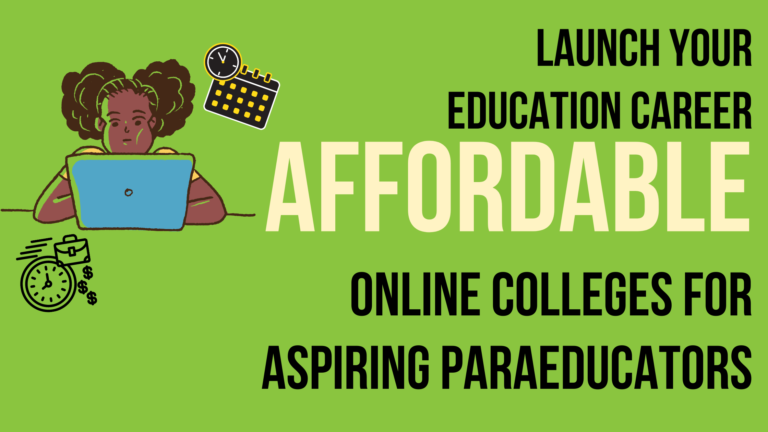How Paraeducators Can Turn Challenges into Growth Opportunities
As a paraeducator, your role is crucial in supporting students and teachers, often navigating diverse challenges in the classroom. These challenges can sometimes feel overwhelming, but what if we viewed them differently? Instead of seeing challenges as setbacks, we can transform them into growth opportunities.

Here’s how you can leverage difficulties to enhance your skills, resilience, and effectiveness in your role.

1. Embrace the Value of Failure in Professional Growth
Failure is an inevitable part of any profession, especially in education. However, instead of fearing failure, we can embrace it as a valuable learning tool. Here’s why:
- Reflective Learning: Every failure offers a chance to reflect on what didn’t work and why. This reflection is the first step toward growth.
- Building Resilience: Encountering setbacks and learning from them builds resilience, an essential trait in a dynamic classroom environment.
- Setting Informed Goals: By understanding our failures, we can set more realistic and informed goals that align with our professional development.
2. Identify Common Challenges in Your Role
Paraeducators face unique challenges every day. Recognizing these challenges is the first step in turning them into growth opportunities. Here are some common challenges:
- Diverse Student Needs: Managing a classroom with students of varying abilities and learning styles can be daunting.
- Collaboration with Teachers: Working closely with teachers who may have different teaching methods or expectations can be challenging.
- Balancing Multiple Roles: From administrative tasks to direct student support, paraeducators juggle various responsibilities.
3. Learn from Real-Life Examples
Sometimes, the best way to learn is through the experiences of others. Here are two case studies of paraeducators who turned their challenges into opportunities:
- Case Study 1: A paraeducator struggled with a disruptive classroom environment. Instead of giving up, they sought out professional development in behavior management and collaborated with their teacher. Over time, they developed strategies that transformed the classroom dynamics, benefiting both the students and their own professional growth.
- Case Study 2: Another paraeducator faced difficulties in supporting English Language Learners (ELLs). They used this challenge as a catalyst to gain certification in bilingual education. This not only helped the students but also advanced their career and expanded their skill set.

4. Implement Strategies to Transform Challenges into Opportunities
To effectively turn challenges into opportunities, consider these strategies:
- Reflect and Assess: After facing a challenge, take time to reflect. Ask yourself: What happened? What was my role in the outcome? What can I do differently next time?
- Seek Feedback: Don’t hesitate to ask for feedback from colleagues, teachers, or even students. Their insights can provide new perspectives and solutions you may not have considered.
- Focus on Growth: Remember, the goal is growth, not perfection. Every challenge is an opportunity to learn something new.
- Set SMART Goals: Based on your reflections, set Specific, Measurable, Achievable, Relevant, and Time-bound (SMART) goals to address areas for improvement.
5. Build a Strong Support System
Having a support system is crucial when navigating challenges. Here’s how to cultivate one:
- Connect with Peers: Build relationships with other paraeducators who understand the unique challenges of your role. Sharing experiences can provide mutual support and encouragement.
- Join Professional Communities: Engage with online groups or professional organizations where you can exchange ideas, seek advice, and stay informed about best practices.
- Seek Mentorship: Identify mentors, like myself, who can offer guidance and support, helping you navigate tough situations and turn them into learning opportunities.
Closing Thoughts
Challenges are a natural part of the paraeducator’s journey. By shifting your perspective and embracing these challenges as opportunities for growth, you can enhance your skills, build resilience, and make a more significant impact in the classroom. Start by reflecting on a recent challenge, seek feedback, and set a goal to turn it into a growth opportunity. Remember, every setback is just a setup for a comeback.
PIN FOR LATER









